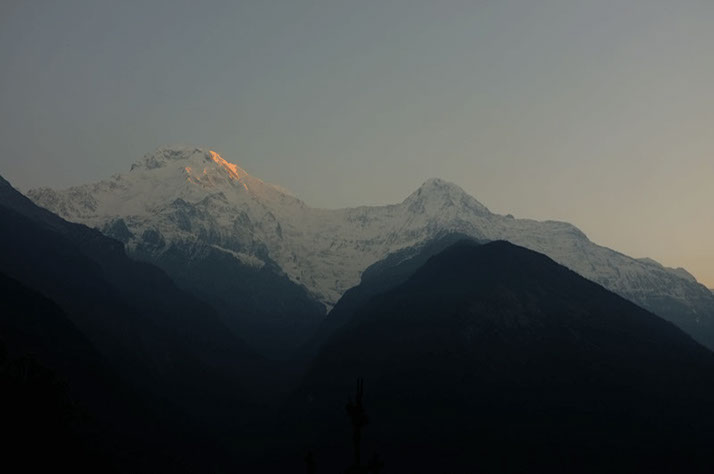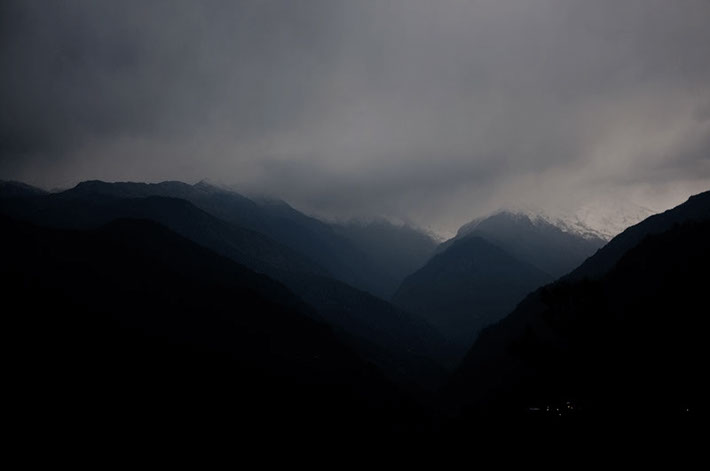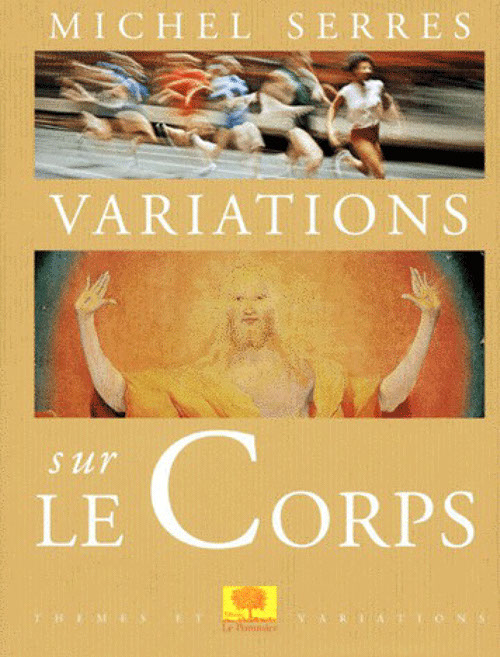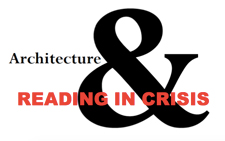Michel Serres, Variations on the Body
Read by Felix Green
Edinburgh, 28 April 2020
In the extract that follows, Michel Serres offers an understanding of how movement and risk can return humans to a less convoluted, almost less pretentious, primordial state. He talks about moving over mountains and rocks quite a bit here, and how, paradoxically, the increased jeopardy involved in being on a rope can shrink our impression of the world to our immediate surroundings and allow us to mingle with its materiality in a more direct way.
His writing feels relevant now during the COVID-19 lockdown when a lot of us are being asked to move less, and find ourselves in a new stillness - now that movement between people and crowds, let alone on mountains, comes with a very real and ancient risk.
I like to climb rocks, mountains, and the feeling of flow and control you get in moving over landscape that is ambivalent about your being there at all. So Serres’ text here, reminds me of something I miss, rather than teaching me how to be comfortable with stillness.
That said - the mountains will be there when we need a re-orientation against them when the time comes. And within the text is a reminder of how quickly our hands can become feet again when the landscape demands. Of how quickly our eyes can turn from the horizon ahead of us to the next handhold on a cliff-face or the ground moving under our feet.
Felix Green, Edinburgh 28 April 2020
Extract from Variations on the Body, Michel Serres.


EXTRACT FROM:
Variations on the Body (1999), Michel Serres, translated by Randolph Burks,
(Minneapolis: Univocal, 2011).
Text simplified for reading: for footnotes, page numbers, illustrations or TO CITE please refer to the 2011 Univocal publication.
***
METAMORPHOSIS
Little time remains to you. Live as though on a mountain. Here or there is of no importance... MARCUS AURELIUS. Meditations.
I'm walking over ground of a gradually steepening pitch. At a certain point, I pause and start using my hands; the real mountain begins. I'm climbing. Do I, as soon as my back slopes forward, return to the state of the quadruped? Almost: my body transforms; feet become hands and my two manual grips secure balance. Homo erectus, the standing man, of recent date, reverts back to the one from whom he is descended: the archaic quadrumane. This thunderbolt recollection became so black, in me, that I no longer fear to speak of the beast; I remember who we were.
Everyone knows the risks incurred in the mountains: even when careful and cautious, alpinists die there from accidents. Where then does that intense sense of security come from that's experienced by those who, calm, devote themselves to a passion reputed to be dangerous? Anxiety, of course, occurs before the climb, just as fear returns after; but during it, the body progresses, on the rock face, as though it were protected. But, leaving aside guides, pitons, ropes and partners, by what, by whom?
Humanity and Animals
Stretch out your arms and legs: your twenty fingers and toes attain in space a large rectangular frame or a circle – your starfish, octopus or gibbon's maximal hold on the world. Your active force and sensibility radiate at the extreme points of this figure. Let these rivets hold, and you no longer have any need for bed or hearth; you inhabit this square: place, dwelling, niche. Move your limbs, now, and feel form around you, starting from this flat frame, an invisible and mobile parallelepiped – cube, prism or large paving stone – equipped with its sides, edges and vertices, a ball even or perhaps a sphere, whose elements – the points, lines and planes, which I would prefer to call already geometric, since they ensure mastery of the earth – go into the construction of the animal's natal house, its first refuge, the originary architecture of its primitive building. Curled up within the womb formed by the curves of force traced out by its four hands, the ape has no need for a roof. The body's back and upper parts protect it. The animal inhabits this tunic, skin, membrane or envelope that is its relation to a world which is to correspond to it. I've frequented them too often not to be aware of them. Who climbs the rock face? Not a visible body exposed to the void, but, precisely, this mobile extensible ball inside of which the simian organism reposes. Before launching out, I assess the wall and see the invisible web of holds that line up with my possible grasp; the ball sticks, adapted, on the route thus woven. I believe I understand the spider, whose net projects afar – element by element – the aforementioned tunic induced by its eight arthropod legs, since, often, I've been transformed into a daddy long-legs on a rock, or hanging, on rappel, at the end of a rope. How could we have forgotten this elementary and animal relation to the world?
The Body in its Nascent State
During his regression to this pre-human state, the climber is, therefore, sheltered in an archaic, invisible, elastic, obliging uterus, whose variable paving stone contains and protects his entire body which is, then, slumbering inside the prehensions and supports that stay awake for it – just like his head, that stupid animal, which is then, sleeping: I know how things are with not thinking. The animal stretches out in the prenatal.
When the slope levels out, the alpinist gets up again. Then, just as the chick breaks the shell's vault with its beak or the drowsy joey delivers itself from the parental pouch and wakes on its hind legs, likewise, to give birth to man – erect biped or little girl on the march – our quadrumane ancestor had to break open that membrane, a shirt slipping along the trunk, falling, to the ground, in a crumpled pile, a shirt thus reduced, then, to the support polygon, that small clumsy handkerchief, sometimes punctual and null, starting from which two hands, two feet, plus a head began in disequilibrium, out of plumb perpendicularity, movement and freedom – the two hands strangely useless, the two feet stumbling over pebbles, the head in the air, naked, given birth to, come forth, given over to the wind, the sun, the cold, in pure nature, therefore in danger. Suddenly, it had to start thinking... but of what? Of constructing a house with its new hands. The very first cogito was a plan for a refuge to recover the lost ball. This is why we seek a roof; this is why we inhabit. The human, standing, has just been born.
The Body in Motion
Penetrated by the snow, overcome by the sun, bent against the wind, reduced to silence by shortness of breath, the roped party is ascending the wall. The slightest false step and gravity, swiftly, takes its revenge. The body relies only on its valor and the generosity of those who expect the same in return. This fair harshness teaches the truth of things, of others and oneself, without pretense. Exacting corporal exercises kick the program of first philosophy off wonderfully with an immediate decision, one cutting short all doubt: high on the mountain, hesitation, going in the wrong direction, lies and cheating, are equivalent to death.
Written or spoken, repeated without danger, language conversely causes the proliferation of parrots who, immobile, fidget and reproduce. The other is reduced to nothing in it, by dead messages, and the thing is reduced to its recording media – wax, screen, paper – lastly oneself is reduced to its neurons, to the I, to thought. The risk of truth disappears, whereas the world, inimitable, exacts movements and actions whose pertinence it immediately sanctions, and the group destroys itself there in proportion to its lies. But, in fair exchange, this world shows its phenomena, in all obviousness, and gives its data for free. Faced with the naked rock, the naked body cheats as little as does an automatic machine equipped with its software: a faithful (in these two cases) simulation, a lying one everywhere else.
I've never known how to say the ego, nor describe consciousness. The more I think, the less I am; the more I am I, the less I think and the less I act. I don't seek myself as subject, stupid project; only things and others are found. Among these, a little less thing and much less other, is my body. In order to speak fairly of it, I began long ago with The Five Senses: the skin, hearing's pinna, the two non-verbose tongues of flavors and kissing, the visit on the move of the world's landscapes... sensuality's delectable pleasures. Clever, hypocritical and lying, the speech that explores who I am – full of vanity when it fidgets within the hidden recesses of a warm and lazy interior – again becomes instructive and fair (I insist upon once again taking up this adjective) as soon as the body exposes itself to cold, danger and death, in the most intense of osseous, muscular, perceptual, metabolic, respiratory, sanguineous, total activities: neither the body nor speech, then, can dream, strut, cheat or lie. Let's go.
The Body Associates the Senses
The ascent begins before the dawn; climbing reveals space. Flying in an airplane, the traveler's eyes widen, sometimes, to the size of the windows, while – slumped in its narrow seat in the rapid passenger cabin – his body sleeps. This is indeed a flyover vision: however large the landscape, below, may present itself, it forms a spectacle, like at the cinema, where the viewers remain passive and seated in a dark room, reduced to the gaze, the only activity in a flesh as absent as a black box. The animated eye overhanging a quasi-dead organism produces almost incorporeal sensations, already abstract. When, on the contrary, hands are squeezing blood out of the rock, when chest and stomach, legs and genitals, stay parallel to the wall, when back, muscles, nervous, digestive and sympathetic systems are engaging themselves, together and without reservation, in the material approach of the relief, in a relation of apparent struggle and real seduction, so that the stone, to the touch, loses its hardness so as to gain, loved, an astonishing softness, vision – even broad – loses its flyover distance and concerns the entire body, as though the totality of the organism, become lucid, contributed to the gaze, while the eyes go a little black; so what, from above, remains spectacle, becomes integrated into the body whose size grows, in return, to the gigantic dimensions of the world. The ensemble of holds contributes to apprehension: global grasp and vague fear. Sight reposes on touch. Tissues and bones become so elastic I think I'm touching the valley, three thousand meters below, with my fingers, and, already, the peak, before having reached it. While my skin, extensible, is fitting itself closely over the region to the point of covering it, the contemplative or theoretical soul, dormant, is shrinking and taking refuge in the forgetfulness of abstraction. This second vision entirely reverses the flyover kind: the living eye in the dead body produces theory, in a sort of self-evidence; does he see it inside out, the mountaineer whose gaze is growing black in a white body which, living, contemplates, by clasps and caresses, the entire universe it covers right side out? The body in motion federates the senses and unifies them within itself. For this global corporal vision, this touch that, by a wondrous transubstantiation, changes the rock face into flesh, are both unceasingly enchanted, in the absence of language, by tacit music. To carry off a mountain climb without tiring, even an exacting one, it's enough, in the silence, never to lose some theme and its variations: they send precious assurances of balance from the external ear to its internal neighbor. Sustained, this unheard of song rises from the body, in the grip of rhythmic movement – heart, breath and regularity – and seems to emerge from the receptors of the muscles and joints, in sum, from the sense of the gestures and movement, invading the body first, then the environment, with a harmony which celebrates its grandeur, adapting to it the very body which emits it, then abounds in it, filled. Taciturn since the beginning of the world, the earth and sky, the cold shadow and the mauve predawn light strewing with pink the ice couloirs and needles of rock, together sing the glory. Daylight spreads through the enormous volume.
I hear the divine invading the Universe.

© city|speculations 2012
